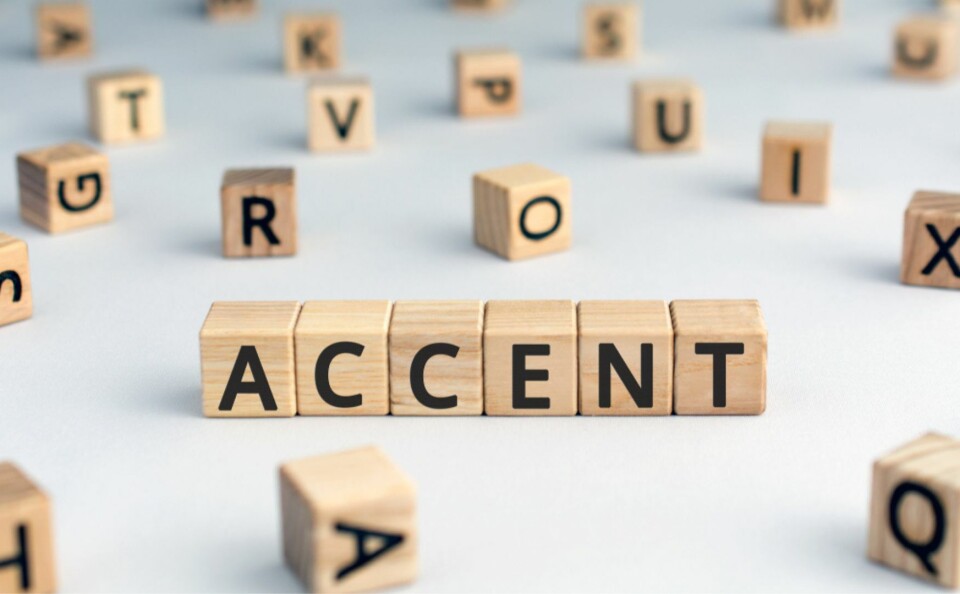-
Festivals, holidays and places to visit in France in April 2025
Including a gladiator battle in a Roman arena, an international garden festival and the Paris marathon
-
Many Société Générale customers to be charged additional fees from April
There is some good news for international banking and instant transfers, however
-
Why gas prices in France are rising in April - and by how much
It comes after six consecutive monthly rises. Try these tips to reduce your bills
Why French regional accents are rare on TV
France lags behind the UK and US where local accents have been encouraged to breakthrough in media, says expert

Discrimination against regional accents continues to be a widespread problem in France, two experts claim.
The country even coined the phrase to describe this particular form of prejudice – glottophobie (glottophobia).
Rare to hear regional accent in the media
Most people in the public eye in France, from politicians to presenters, talk with more or less the same neutral tone of voice, effectively eliminating any trace of the country’s 30-plus regional accents in the media.
“France has one of the most authoritarian linguistic policies in the world,” said Philippe Blanchet-Lunati, professor of sociolinguistics at Rennes University and inventor of the term glottophobie.
He formed the word from the Greek for tongue – glôtta – and the suffix - phobie - commonly employed to describe other forms of discrimination, including homophobia, xenophobia and fatphobia (grossophobie).
Read more: Tune in to French regional accents - how many do you recognise?
‘Criticising an accent is discrimination’
Michel Feltin-Palas, author of the 2020 book J’ai un accent, et alors?, agrees that casting aspersions on the way a person speaks, even unconsciously, should be taken seriously.
“Accents are part of our identity,” he said. “When we criticise them, it’s like criticising a black person for being black, a Jew for being Jewish, a woman for being a woman, and so on. It’s discrimination.”
Mr Feltin-Palas co-wrote his book with journalist Jean-Michel Apathie, one of very few people in the French media to have kept his accent (Basque) for the duration of his 40-year career.
Some 27% of French people say their accent has been the subject of teasing and 16% have been discriminated against at work or school because of it, according to figures collected by Mr Feltin-Palas for his book.
Read more: 14 words that change dependent on where you are in France
Author blames post-Revolution Parisian bourgeoisie
France lags behind countries such as the UK and US, where regional accents have slowly been encouraged to break through from Received Pronunciation and General American on TV.
“By comparison, France lives in a linguistic dictatorship,” said Mr Blanchet-Lunati, or what the linguist refers to as “a nationalistic linguistic ideology”.
He traces the current situation back to post-Revolution France, when the Parisian bourgeoisie, the social class that ultimately devised the Republic, assumed power from the aristocracy.
“Politically, the Revolution and the Republic pretended to give a voice to the people.
“Linguistically, it gave it to the Parisian bourgeoisie,” said Mr Feltin-Palas, quoting the former director of the Petit Robert dictionary, Alain Rey.
The term glottophobie was officially included in the Petit Robert in 2023.
Accent discrimination could become a crime
In 2020, former French MP Christophe Euzet, of Catalan origin, tabled a bill to make accent discrimination part of the criminal code and the labour code, and punishable by law.
While the bill was signed off by MPs, it is still awaiting a vote in the Senate.
In 2018, the far-left politician Jean-Luc Mélenchon caused controversy for mocking the accent of a journalist from Toulouse, asking other members of the press: “Does anyone have a question in comprehensible French?”
He later apologised.
Related articles
France’s tug-of-war between its regional languages and official French
Québécois: 10 words or phrases to introduce Canadian French
LISTEN: Click map allows you to hear 75 local languages of France
























